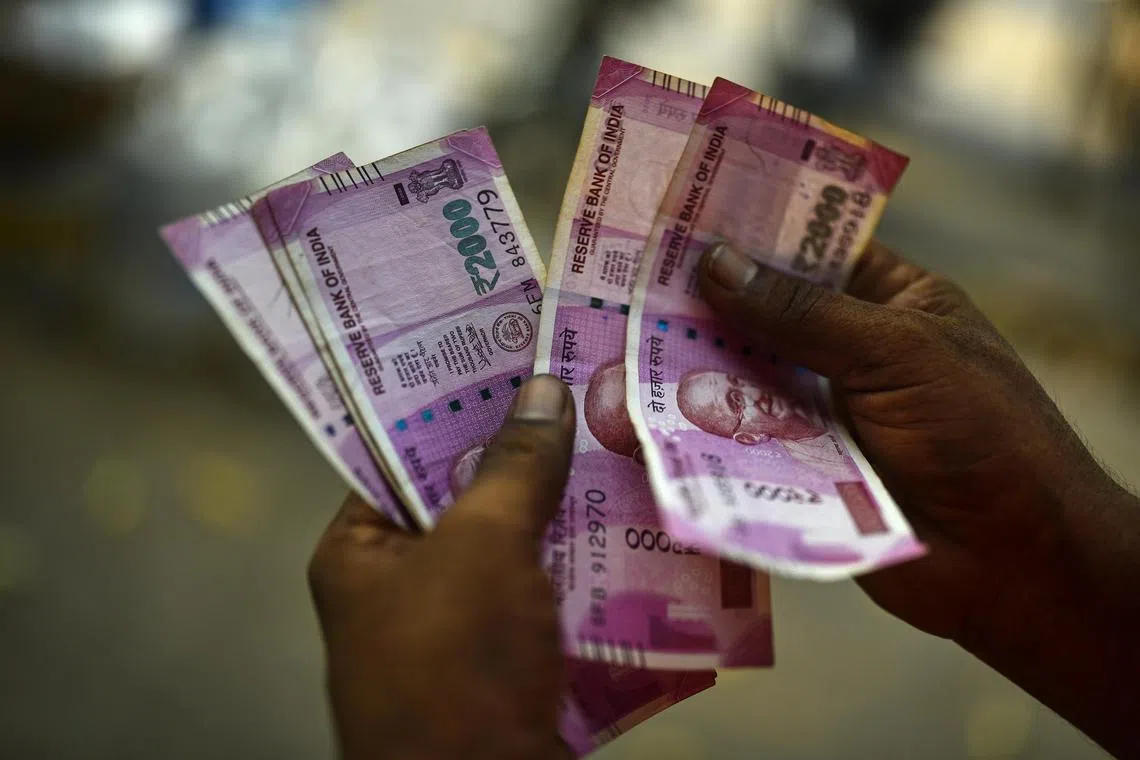India’s removal of 2,000 rupee note may spur gold, property rush
Sign up now: Get ST's newsletters delivered to your inbox

India announced last Friday it is withdrawing its highest value currency notes from circulation.
PHOTO: EPA-EFE
Mumbai – India’s withdrawal of its highest value banknote from circulation
In a bid to quickly spend the 2,000 rupee (S$32) notes that will be withdrawn over the next four months, Indians could snap up gold, properties and household items like air-conditioners and refrigerators, according to economists.
This is in contrast to the 2016 exercise, which removed almost all cash from circulation and led to long queues outside banks and automated teller machines.
“It is expected to help growth a bit because consumption is expected to go up,” said economist Ankita Pathak at DSP Investment Managers. “But overall, if we look at the macro environment, it is more likely to be driven by fundamental factors.”
The Reserve Bank of India (RBI) last Friday gave citizens until Sept 30 to deposit 2,000 rupee notes into a bank or exchange them for other denominations, citing a “clean note policy”.
Governor Shaktikanta Das reiterated the stance on Monday, saying the move is part of the central bank’s currency management drive.
“There was a reluctance to accept 2,000 rupee notes always,” he told reporters in New Delhi. “Maybe, after the notification, the reluctance has increased.”
Some 10.8 per cent of the notes will be taken out of circulation, unlike the earlier demonetisation exercise which removed 86 per cent of the currency.
“With the banknote remaining legal tender, unlike demonetisation, consumption could see a boost,” Kotak Mahindra Bank economists wrote in a report. “Notes which are not deposited by individuals could move to high-value spends such as gold/jewellery, high-end consumer durables and real estate.”
Local media reported instances of panic buying in jewellery stores in New Delhi at the weekend, with jewellers quoting higher prices for gold. Late deliveries of the precious metal are now expected because of the backlog in orders.
People’s reluctance to disclose their cash holdings may lead to an “initial surge in conspicuous spending”, said Standard Chartered Bank economist Samiran Chakraborty.
News of the rupee note ban came hours after the RBI declared a bumper dividend to the government, which could further add to liquidity in India.
The ban “could add a temporary punch to the already improving macro outlook and sentiments”, wrote HSBC Holdings. BLOOMBERG


